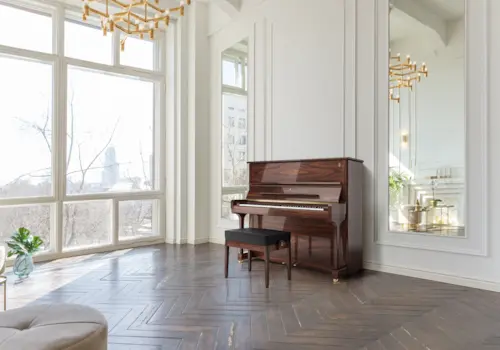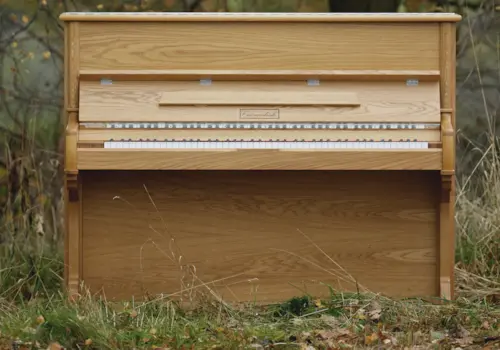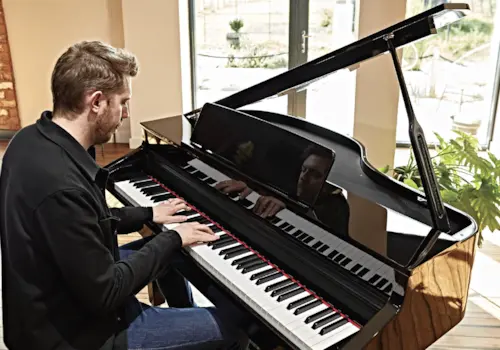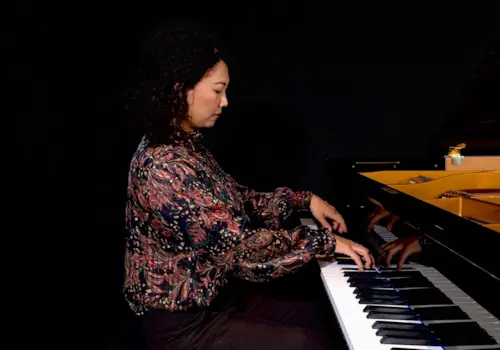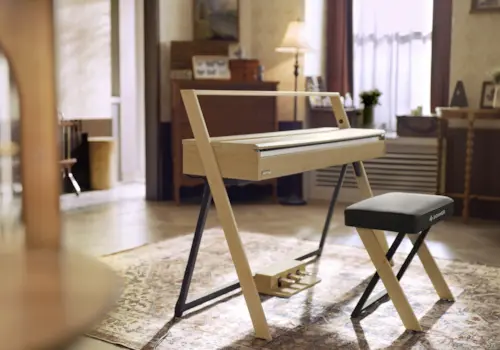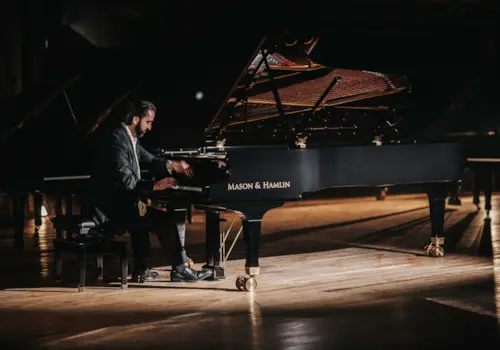Rhonda Rizzo talks openly about the importance of not forgetting we do have a life to live
“One must play the right notes at the right time. But if forced to choose between the right notes absent of character or some wrong notes for the right cause, the choice is clear. Certain great artists can never play perfectly. Perfection is too mundane, brittle, uptight for those who make music the way God makes trees.” Russel Sherman, Piano Pieces
The world is shrill and just getting shriller. Listening to any news broadcast or scrolling through social media is an exercise in cacophonous opinions, individual truths, and self-righteous pronouncements. Posturing and badgering has all but replaced civil discourse. We are, to paraphrase Pema Chödrön, wasting our gift of speech expressing our neurosis.
If ever we needed the oasis of sanity-saving music, it’s today. We need artists who remind us that current events don’t define all of life, and that humans are more than animated pieces of meat. We need music that speaks to the spirit—music that goes deeper than fad, flash, trends, and flamboyance. We need those artists who do nothing short of getting their egos out of the way and letting the beauty and richness of music and life pour through them through the notes. These gifted musicians are ones who understand that in order to be a great artist, one must be a full human being.
One of the dangers of intense piano training is the threat of becoming a technical wizard with absolutely nothing to say. It’s easy to condemn the sort of flashy, depth-free performance that dazzles but doesn’t enlighten. What’s harder to see is how a life that centres around nothing but practising leads to these empty, meaningless performances.

A meaningful life is a rich one. The artist who embraces life is curious, falls in love, pursues interests outside of music, and is spiritually and intellectually alive. Artists committed to building a life, not just a career, know that everything they cultivate in the rest of their lives eventually finds its way to the piano. Nothing is wasted. Through the prism of their own rich lives, the great pianists touch our lives not because they play notes faster than anyone else, but because through their humanity and the humanity of the composer, they remind us that we’re not alone. Others have felt what we’ve felt.
Sweeping pronouncements don’t create a well-rounded pianist. Like practising, this sort of richness is built bit by bit, through the ordinary stuff that makes up real life. Most importantly, it involves engaging with life, not avoiding it. Truly great artists have learned that all great musical insight comes directly from messy/beautiful life because like religion or sex, there are no borrowed musical experiences or insights. They know if it isn’t real for them, it won’t be real for their audience.
Living like this takes a daunting amount of self-awareness. It involves knowing when to speak and when to keep silent; knowing what to play and what to avoid. At its centre, it’s a commitment to the sacred task of speaking truths in a language deeper than words. Any falsehood that springs from ego has been stripped away, leaving just the heart of inevitable grace and humanity.
So what does this mean for ourselves and our students? In order to be true artists with something meaningful to say, we must be as committed to “getting a life” as we are to practising the piano. It means we walk out of the practice room and into the colour and bustle of the rest of life. We read non-musical things, commit to an exercise programme, take up non-musical hobbies, travel, fall in love—in other words, grow roots deeply into our own lives so that the nutrients we find there can flower in the music we’re called to play. And then, if we’re lucky, we “make music the way God makes trees.”
Main image: ©Pexels

